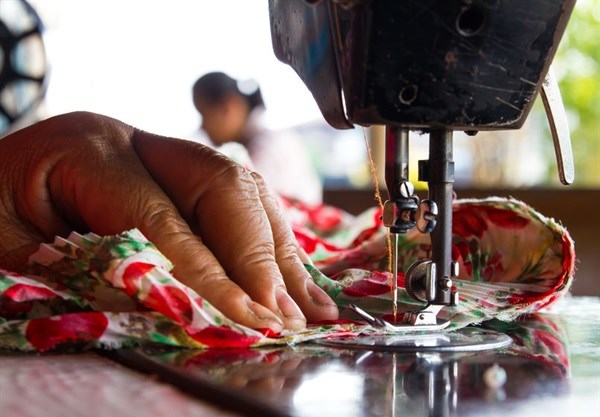Whether you are a retailer, brand or manufacturer, the need to proactively manage social compliance issues in your supply chain has never been greater. Social compliance matters first and foremost because it's the moral way to run a company, but the business benefits cannot be ignored either.

©Montian Noowong via
123RFThese were the sentiments of Gerwin Leppink, Europe representative at Worldwide Responsible Accredited Production (Wrap), an independent certification programme operating in the apparel, footwear and textile sector. He was speaking on the topic 'How responsible sourcing applies to Africa' at the recent Source Africa trade show held in Cape Town.
Reputation matters
“The world is watching. Information moves around the globe in seconds – both positive and negative – and it can impact a business's reputation,” he said.
Consumers are watching, and so are governments and consumer protection bodies. There are now dedicated organisations helping shareholders understand just how socially responsible supply chains are for companies they're looking to acquire shares in. Government arms, in Europe and USA especially, have growing concern for what's occurring in garment and textile supply chains, he noted.
And today’s younger consumers have higher expectations of the ethical side of a product and its production environment.
Africa’s opportunity
“For us in apparel supply chains, reputations lie at factory level, retail and brand level but also country level,” stated Leppink.
Working off Africa’s relatively clean slate in terms of responsible sourcing, Leppink believes the continent is faced with the opportunity to build a competitive advantage with strong supply chain systems from the very beginning.
“I think there's an opportunity for Africa to be proactive and not become Asia from ten years ago.”
He referenced Bangladesh’s Rana Plaza collapse in May 2013 which claimed more than 1,000 lives, and 2012’s Ali Enterprises factory fire in Pakistan in which over 250 workers died. The former was the result of a structural failure as the building was not suitable to house a factory and lacked the correct safety certificates, while in the latter escape routes were blocked preventing workers from reaching safety.
“Africa has a neutral reputation. Now is the time to put practices in place to avoid horrors like these if business in Africa is going to grow. Africa has a clean slate. Keep it clean.”
Christian Gerling 20 Jun 2017 The business case for compliance
Beyond the moral obligation, social compliance is vital for risk management and business continuity. It protects your organisation to be able to work sustainably.
Leppink said there is a definite need for self-assessment in factories and the introduction of policies and procedures as part of a sustainable business model.
Social compliance is not free of change - it costs time, resources and money. But there is a return on cost, and therefore should be viewed as an investment. He advised that verification be approved before starting to do business, to protect yourself from the inevitable trial and error.
“Social compliance requires a systematic approach from management – you'll have more efficient production if you work in a compliant way. Workers are happier and have better output if they work in an ethical environment.”
Best practice
In terms of best practice, he said that compliance needs commitment from leadership and it needs to be a sustainable effort, not a lucky shot. It demands effective management on a consistent basis.
Continuous training for all employees is also key to compliance, as are supportive documentation. Are there safety procedures in place? Do workers know what to do if there is a fire?
“Best practice is very simple. Know as much as you can about the facilities where production is occurring. This applies to retailers, brands and manufacturers themselves. Think 'what would the buyer want to see in order to do business with my company,'” said Leppink.
He concluded, “Verifiable, responsible sourcing practices have become a global sourcing imperative and an increasingly important aspect of supply chain management in today's value chain.”








































